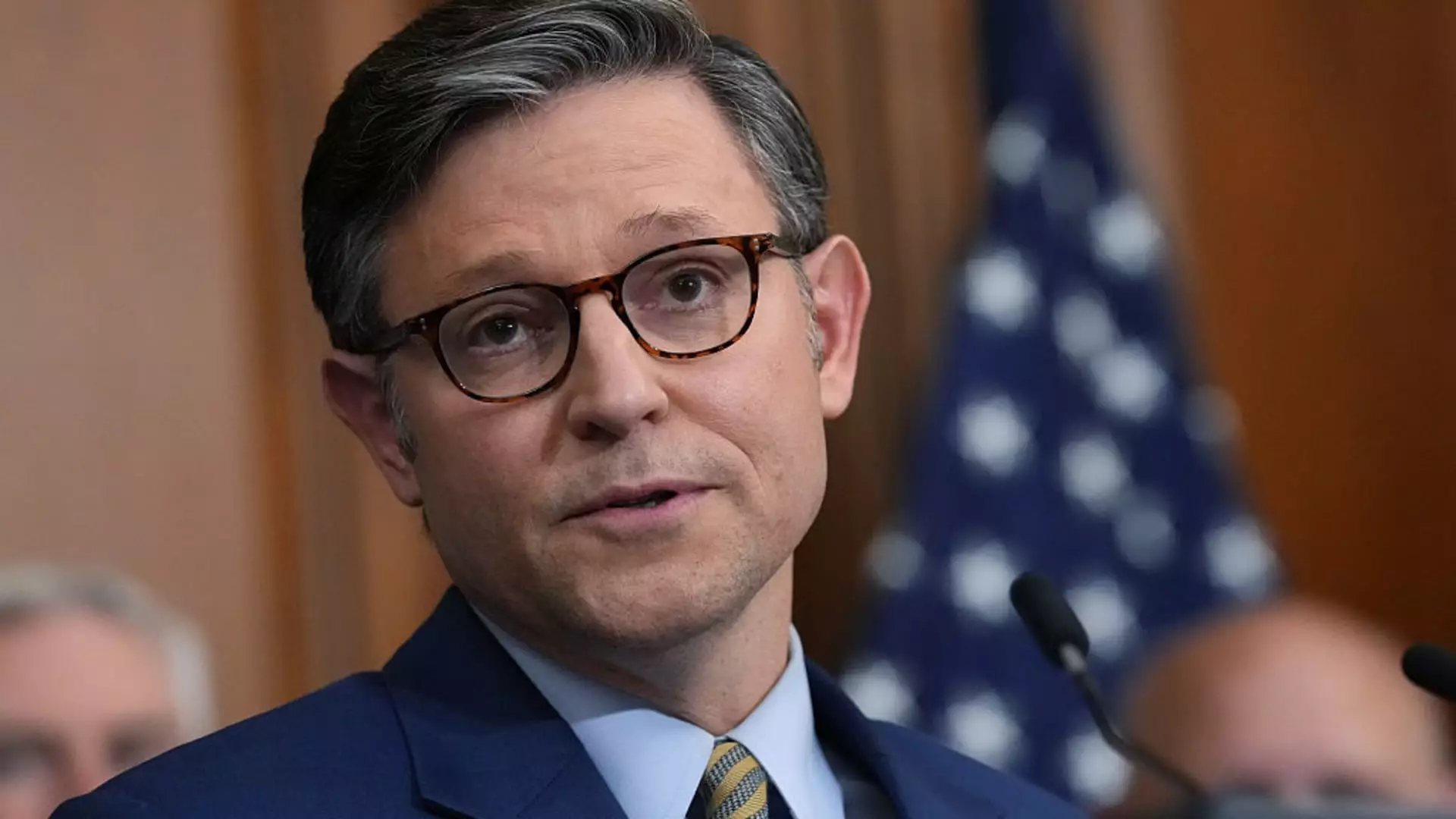In recent weeks, the healthcare debate has once again boiled to the forefront of political discourse, particularly surrounding cuts to Medicaid as presented by House Republicans. Speaker Mike Johnson’s steadfast defense of these cuts under the guise of “common sense” work requirements is not only troubling but indicative of a broader trend wherein the most vulnerable populations are toyed with as political pawns. His statements suggest a fundamental misunderstanding of both the complexities of poverty and the vital role Medicaid plays in the lives of millions of Americans.
Work Requirements: A Poor Rationale
Johnson’s assertion that “only those who choose to” lose their Medicaid coverage is reminiscent of the classic “pull yourself up by your bootstraps” narrative, which often neglects the stark reality many face. Requiring able-bodied individuals to work, volunteer, or participate in job training for 80 hours a month may sound reasonable to some, but fails to consider the systemic barriers that hinder employment opportunities. The insinuation that the only thing standing between individuals and jobs is their unwillingness to comply with bureaucratic norms diminishes the complexities of financial instability, transportation access, and childcare challenges. Essentially, he presents a superficial solution to deep-rooted social challenges, ignoring the fact that such requirements may also disproportionately affect those already struggling.
The Real Impact: More Bureaucracy, Less Care
What is particularly alarming about the proposed changes to Medicaid is the additional paperwork and eligibility checks that Johnson claims are merely “minor enforcement.” This speaks volumes about a lack of empathy for the very communities these policies will impact. Increasing bureaucratic hurdles under the pretense of accountability risks disenfranchising thousands of individuals who may, through no fault of their own, struggle to navigate an already complex healthcare system. Johnson and his supporters seem oblivious to the fact that the labyrinth of paperwork can lead to catastrophic health outcomes; something that is both morally reprehensible and politically shortsighted.
Pushing Back Against Pushback
Elected officials like Reps. Mike Flood and Ashley Hinson have experienced public backlash for supporting these budget cuts, illustrating the disconnect between the Republican party’s agenda and the concerns of everyday Americans. Town halls where citizens voice their disapproval are a clear indicator that constituents are not accepting these policies without challenge. When even stalwart Republicans like Sen. Josh Hawley express misgivings about the moral implications of slashing vital programs for the working poor, it raises questions about the future direction of the party. Johnson’s characterization of dissenters as out of touch with the “American people” only serves to further alienate voters who recognize that healthcare is not merely a line item in a budget but a fundamental right.
The Democratic Response: Legitimizing the Narrative
Democrats have seized upon the opportunity to highlight the dangers posed by these proposed changes, employing powerful narratives that humanize the statistics. Senator Raphael Warnock’s comments regarding the implications of Medicaid “work reporting requirements” encapsulate the opposition’s concern that these policies will push countless individuals off healthcare rolls. By framing the discussion in terms of human lives at stake rather than abstract policy numbers, Democrats are effectively repositioning the narrative to reflect the severe consequences of the Republican agenda.
The Wider Implications: A Society at Risk
This budget package, which encompasses not just cuts to Medicaid but also slashes to programs like Supplemental Nutrition Assistance, reflects a broader ethos that prioritizes fiscal conservatism over the welfare of its citizens. Such draconian measures will only exacerbate cycles of poverty, leading to greater healthcare costs down the road as untreated conditions grow worse. The lack of foresight in this fiscal strategy betrays a profound inconsistency between American values and the policies being proposed— what is “common sense” for a privileged few is effectively a death sentence for many.
As the bill makes its way to the Senate, the implications of these policies reverberate beyond party lines. They highlight a critical juncture in American politics, where empathy, governance, and ethical responsibility collide. In a supposed land of opportunity, it is disheartening to witness the erosion of support for those who are often left behind. The potential approval of such a bill would only serve as a grim reminder that in the race towards budgetary austerity, the most vulnerable citizens are frequently sacrificed.


Leave a Reply